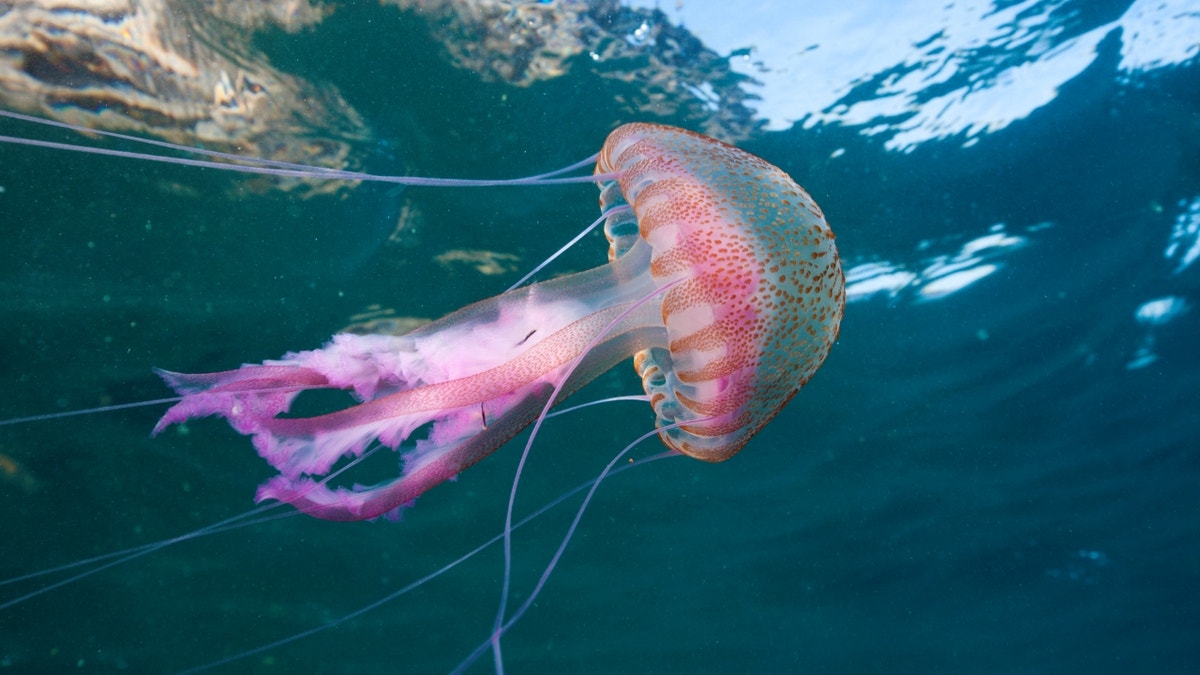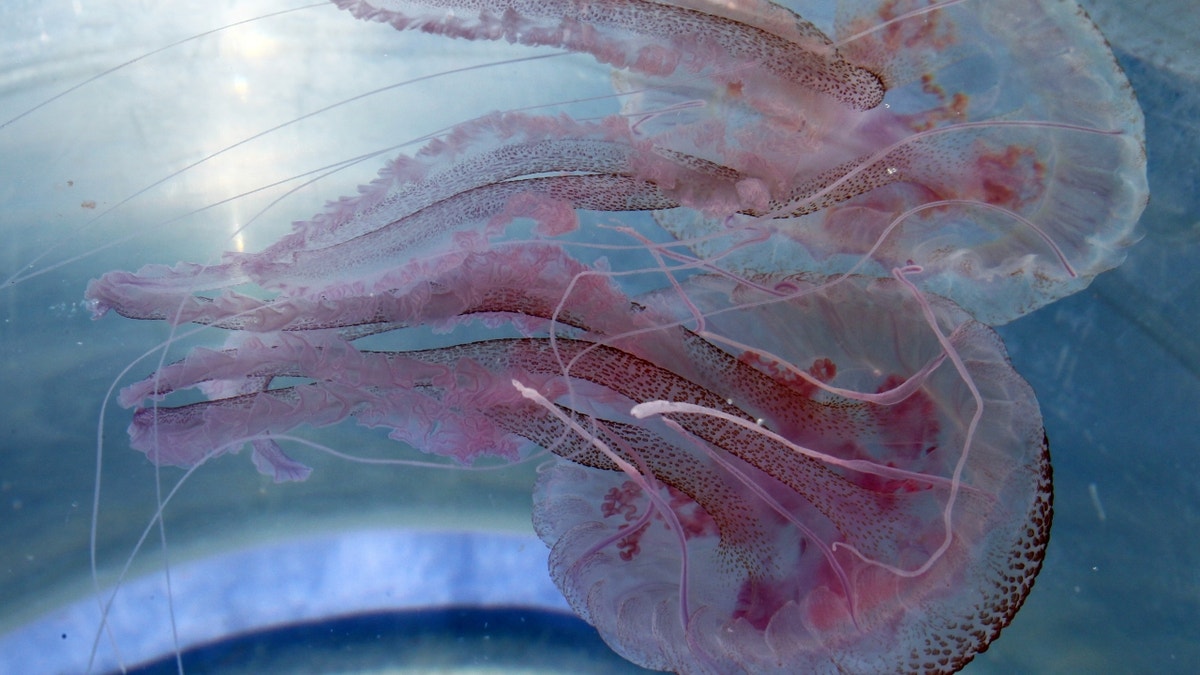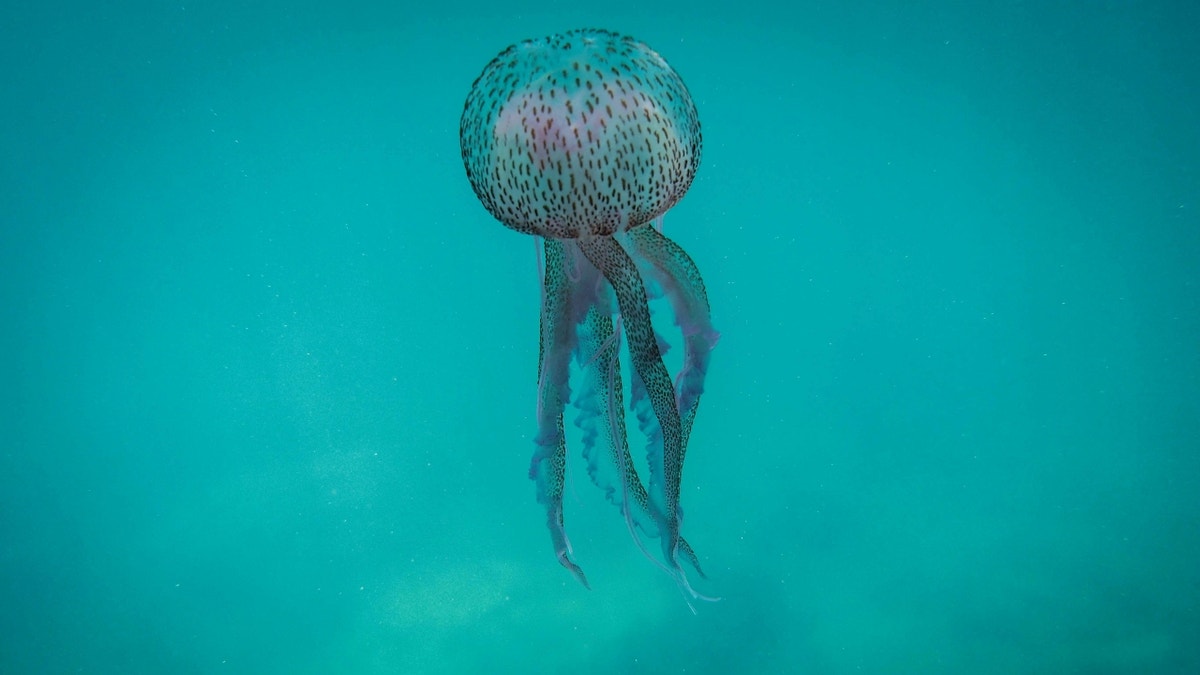Fox News Flash top headlines for August 31
Fox News Flash top headlines are here. Check out what's clicking on Foxnews.com.
An unusual type of jellyfish known as mauve stingers have been spotted on New Jersey beaches – and the marine animals pack an unusually strong punch.
Mauve stingers, whose scientific names are Pelagia noctiluca, are dotted, purplish-pink jellyfish. The sea creatures are luminous and are also known as "night-light jellyfish".
Unlike other jellyfish, mauve stingers have stinging cells over their entire bodies, meaning they can injure without their tentacles.
Beachgoers are warned to avoid the zapping creatures in anticipation of Labor Day weekend. These jellyfish are usually found in tropical, warm regions of the world - making the Garden State an unusual, but not impossible, habitat.
JELLYFISH NUMBERS ON THE RISE ALONG US BEACHES

Mauve Stinger Jellyfish, (Pelagia noctiluca) in Cap de Creus, Costa Brava, Spain. (Reinhard Dirscherl/ullstein bild via Getty Images)
Beachgoer Maggie McGuire told NJ.com that she spotted the jellyfish on Sea Watch Beach in Manasquan earlier this week.
"The water was literally filled with them," McGuire said, and estimated that her children caught around a dozen of them in buckets before releasing them back into the water.
Paul Bologna, a marine biologist at Montclair State University, told NJ.com that he predicts that "thousands" of mauve stingers may be dwelling along the Jersey Shore coastline.

Mauve stinger jellyfishes (Pelagia noctiluca) are displayed in a transparent bucket on a boat of the Oceanological Observatory of the French southeastern city of Villefranche-sur-Mer. (VALERY HACHE/AFP/GettyImages)
Stings from mauve stingers are considered extremely painful according to Bologna, who once allowed himself to be stung by one.
"I’m like, ‘How bad could it be?’" the marine biologist recalled. "Immediately, I used some choice four-letter words and it was just like intense pain."
Stings from mauve stingers can cause pain for up to two weeks and leave permanent scars. Some scientists caution against washing jellyfish burns with seawater and applying ice packs, arguing that it helps venom spread rather than stop it.
Instead, many experts recommend white vinegar, which is an effective deterrent to venom.

The mauve stinger is typically an offshore species widely distributed in all warm and temperate waters including the Mediterranean Sea, Red Sea and Atlantic Ocean. (IBRAHIM CHALHOUB/AFP via Getty Images)
CLICK HERE TO GET THE FOX NEWS APP
Though painful, stings from mauve stingers are not considered deadly. There are no known human fatalities involving mauve stingers.










































